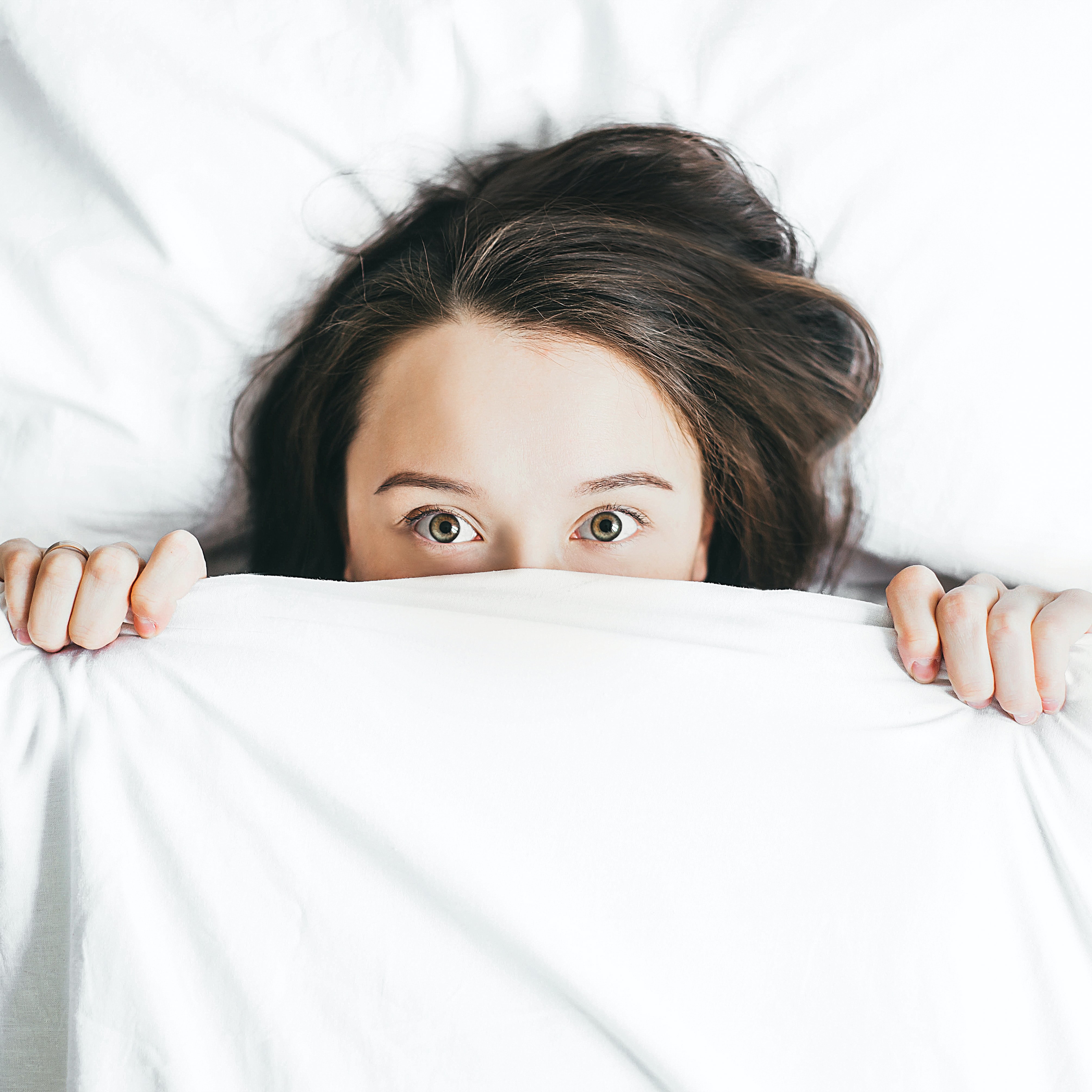It’s another night where you can’t sleep. You keep counting sheep, staring in the dark as the numbers glaring back at you on your alarm clock. Sleep is a fundamental need and all creatures need it to function. Once you don’t sleep normally, things more easily break down mentally and physically: you’re bound to be moody, easily irritated, lack concentration, and be more depressed and sluggish.
As someone who has struggled with insomnia, I’ve learned that our sleep is determined primarily by what we do during the day.
1. Caffeine
The best solution to getting everything done would be more hours in the day…but since that’s not happening, we look to caffeine to feel more alert. It’s the very best part of waking up for many of us! As a stimulant, caffeine blocks adenosine’s relaxing effects and lets dopamine and glutamine (other natural stimulants produced by your brain) run wild, making you feel energized. However, while this energy sounds great during the daytime, you should limit caffeine in the afternoon and evening hours because the overall effects of caffeine can last and make it difficult to fall asleep at night. While coffee is the most popular way to consume caffeine, for those looking for other options, there’s caffeine in many other foods, like chocolate or tea!
2. Nicotine
Another stimulant that deserves attention is nicotine. Did you know that what you eat has a very serious impact on the number of hours you sleep at night? Dr. Carl E. Hunt Director at the National Center on Sleep Disorders Research in a report says, “We know that certain foods that we consume can interfere with sleep, the most obvious one in terms of stimulating wakefulness would be caffeine, and then there’s nicotine.” Smoking within a few hours of bedtime should be avoided and if you can handle it, refrain from smoking completely, as it also will make falling asleep difficult.
2. Alcohol
When you enjoy a glass or two of red wine (or any other cocktail), you may tend to feel drowsy, but once the inebriation wears off, especially at night, you remain wide awake! Why is this?
Alcohol can easily knock you out pretty hard right away, causing your body to spend more time early in the night in the deep sleep stage than it otherwise might. However, your sleep cycle rebounds, and your brain resorts to the lighter sleep stages (including rapid eye movement or REM sleep, when you dream) for more of the night than if you had not been intoxicated. That’s why you wake up not feeling rested, even despite sleeping for many hours.
If the drinking took place a bit close to when you should go to bed normally, sleep issues increase, so be mindful to drink in moderation and try to avoid drinking too close to your bedtime.
3. Fatty foods
Your stomach has a tougher job to do digesting heavy foods that are spicy or fatty than lighter ones (like bananas). A case of indigestion before bedtime can keep you awake because your body will not be relaxed and you won’t drift off to sleep while experiencing heartburn discomfort.
It has also been discovered that when you eat pasta frequently you can develop gluten problems such as gluten exorphins, which are peptides that are formed during the digestion of some gluten proteins. There are chances of them interfering with the central nervous system, which may end up increasing risks for depression and poor sleep.
4. Sugar
You don’t need to stuff yourself with added sugars, as you get lots of sugar from whole, unprocessed foods like fruit. Your blood sugar level is impacted by the quantity of sugar you consume, which very directly influences your energy levels throughout the day.
Sugar tends to boost energy levels quickly, but this quickly dissipates, resulting in a sugar crash and draining the body. A good sugar regimen ensures that your body operates on consistent energy throughout the day, so you can maintain other healthy habits and enjoy quality sleep. When you’re craving something sweet, try a piece of fruit instead!
5. When you eat, and how much
So here’s how sleep connects with diet – once you are eating healthy and allowing the body to absorb proper nutrients, your brain has the chemical environment to produce the neurotransmitters that are required to enhance sleep.
Your body should feed heavier in the morning and lighter at night in preparation for sleep. Also, it’s important to take your time while eating, as a large quantity of food eaten in a short period of time takes your body longer to digest. It’s advisable not to go to bed on an empty stomach, but to eat dinner several hours before bed to give time to digest because a growling stomach will keep you wide awake.
Photo by Alexandra Gorn on Unsplash


